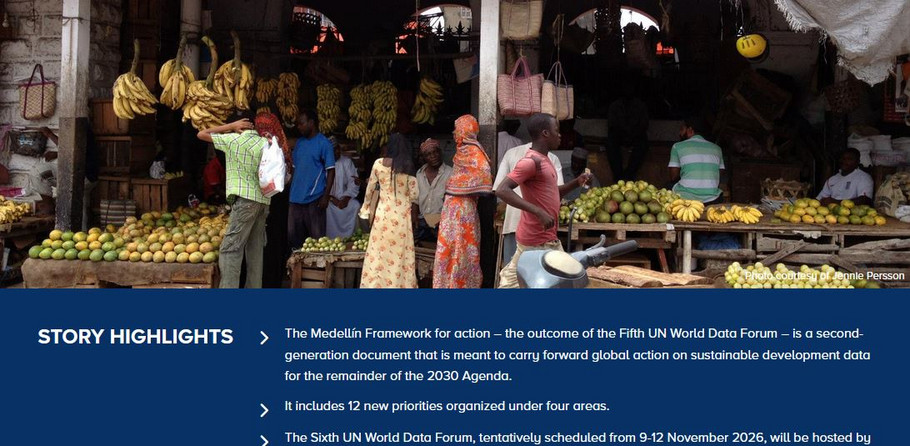
The UN Secretary-General has circulated the report of the High-level Group for Partnership, Coordination and Capacity-Building for Statistics for the 2030 Agenda for Sustainable Development, which updates on the outcomes of the Fifth UN Data Forum and outlines plans for the sixth UN World Data Forum. The report also indicates the Group wishes to update its terms of reference.
The report (E/CN.3/2025/7) with be discussed at the 56th session of the UN Statistical Commission (UNSC), taking place in New York, US, from 4-7 March 2025.
The UN World Data Forum “is organized by the High-level Group, with substantive support from World Data Forum programme committee, under the guidance of the Statistical Commission and in close consultation with Member States, international partners and other stakeholders,” the report notes. It provides an overview of the Forum’s past meetings and their outcomes by highlighting:
- the launch of the Cape Town Global Action Plan at the First UN World Data Forum in 2017, “with a focus on where to concentrate statistical and data capacity development efforts to establish the full range of reporting and monitoring needed to measure progress” towards the SDGs by 2030;
- the adoption of the Dubai Declaration at the Second UN World Data Forum in 2018, calling for an innovative funding mechanism to support the implementation of the Action Plan;
- the Global Data Community’s Response to COVID-19, launched at the virtual UN World Data Forum in 2020;
- the Bern Data Compact for the Decade of Action on the SDGs, launched at the Third UN World Data Forum in 2021;
- the Hangzhou Declaration, launched at the Fourth UN World Data Forum in 2023, to recommit the global community to accelerating progress in the implementation of the Cape Town Global Action Plan; and
- the Medellín Framework for action on data for sustainable development, adopted at the Fifth UN World Data Forum in 2024.
The report highlights that the Fifth UN World Data Forum, held in Medellín, Colombia, from 12-15 November 2024, featured more than 100 different events, including four high-level plenary sessions, 60 panel discussions, 11 short-talk sessions, 12 learning labs, ten locally focused sessions, five demonstration sessions, and five announcement sessions. Organized to attract more in-person attendance, the Forum had gathered over 2,000 people from more than 120 countries.
According to the report, the Medellín Framework for action is a second-generation document that is meant to carry forward global action on sustainable development data for the remainder of the 2030 Agenda. It includes 12 new priorities organized under four areas.
The report reveals that the Sixth UN World Data Forum, tentatively scheduled from 9-12 November 2026, will be hosted by Saudi Arabia in Riyadh.
Share: